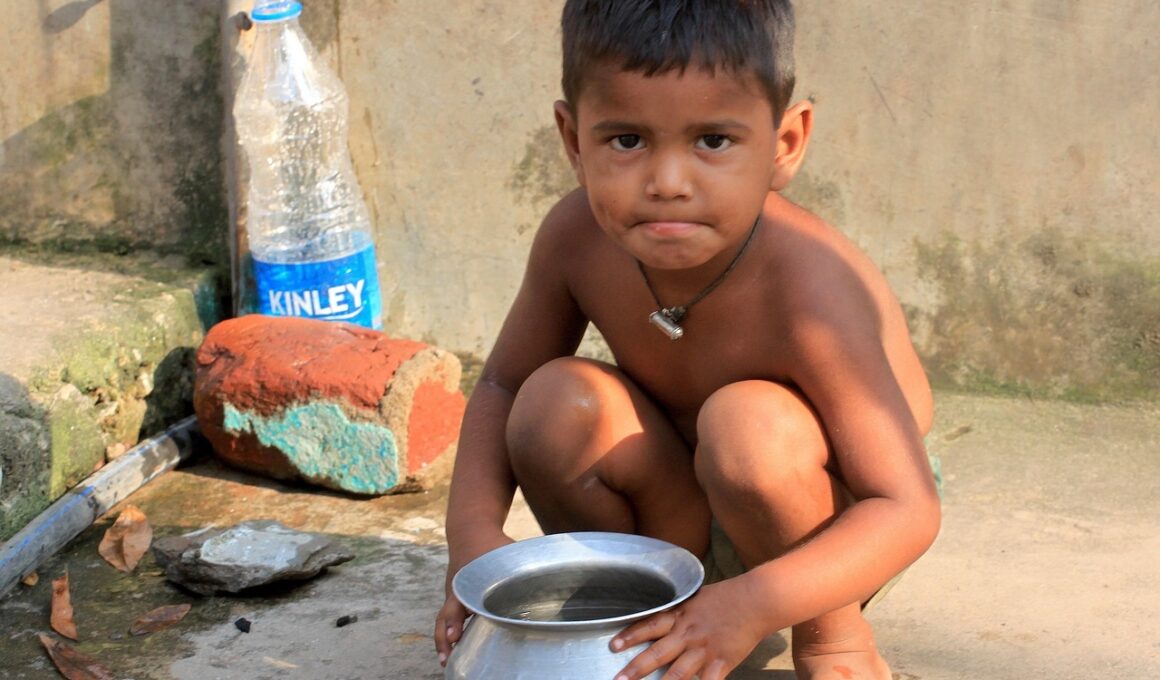Boxing Success Stories from Underprivileged Backgrounds
Boxing has gained a remarkable reputation as a transformative sport, especially for individuals from underprivileged backgrounds. The journey of many boxers showcases how dedication, discipline, and the right training can lead to tremendous success. Stories like those of Mike Tyson and even Oscar De La Hoya highlight a common theme: rising above challenges through boxing. These athletes faced immense obstacles that included poverty and personal struggles, but they transformed their lives through relentless hard work and dedication. Boxing is more than a sport; it offers a path towards improving life conditions. The boxing community provides support that encourages young individuals to pursue their dreams. By engaging in this sport, they gain physical fitness, mental resilience, and a strong sense of purpose. Such transformations portray boxing as a vehicle for healing and personal growth. Many boxing gyms in low-income neighborhoods have become safe havens for these young people. However, boxing’s benefits extend beyond the ring, affecting their education and family relationships positively. These inspiring stories show that boxing can bridge gaps and create opportunities where none existed before.
Many successful boxers attribute their accomplishments to the mentors who guided them throughout their journeys. Coaches play a pivotal role in shaping not only the technical skills of the athletes but also their character. Individuals like Ronnie Shields and Teddy Atlas have been influential in nurturing young talents from disadvantaged prospects. Their unwavering belief in these boxers often leads to significant breakthroughs. Mentoring often includes imparting wise life lessons along with fostering skills. The supportive nature of these relationships creates a conducive environment for success. In many neighborhoods, boxing gyms also serve as community centers, offering youth the guidance they need. By surrounding young athletes with experienced figures, they learn the importance of hard work. In particular, various non-profit organizations are helping to bring boxing to underprivileged areas, ensuring that no talent goes to waste. These organizations often provide scholarships, training equipment, and even competitions to ignite young boxers’ potential. The results speak for themselves, as numerous champions have emerged from these grassroots initiatives. What’s evident is the link between mentorship, guidance and achievement in the world of boxing.
The transformative power of boxing extends well beyond the sport itself, affecting various aspects of life including education and health. Many boxers, starting from underprivileged backgrounds, learn valuable life skills that they later apply in other areas. For instance, discipline gained from rigorous training directly translates to improved educational performance. This cycle of personal development demonstrates how boxing contributes to an overall enhancement in quality of life. Additionally, it promotes health and fitness, crucial for individuals who may struggle with obesity or related health issues. Engaging in physical activity through boxing has shown tremendous benefits for not only improving athletic abilities but also for enhancing self-esteem. These changes contribute to a more fulfilling life, as participants often report feeling empowered. The sense of achievement from regular training and competition fosters a growth mindset. Communities recognize these benefits, leading to increased investment in youth boxing programs. Local governments and community organizations frequently collaborate to provide resources that help young boxers thrive academically and personally. Hence, boxing emerges not merely as a sport, but as a powerful tool for social change.
Impact of Boxing on Local Communities
The impact boxing has on local communities cannot be overstated. Many gyms provide a much-needed escape for youth at risk of falling into a cycle of crime or substance abuse. By channeling their energy into training, these young individuals divert from negative influences. Community boxing programs often become a safe space, establishing a sense of unity and responsibility. This collective environment encourages teamwork and camaraderie, vital for personal growth and community cohesion. Participants often form lifelong friendships and, in some instances, partner up to start initiatives that serve their neighborhoods positively. Local boxing events, often organized by these gyms, bring together entire communities, creating an atmosphere of support and encouragement for young athletes. Such events often draw attention from local media, showcasing success stories and their profound impact on society. By positively influencing others, these boxers become role models, inspiring younger generations. Consequently, community investments in boxing programs often yield positive social outcomes, promoting harmony and a sense of belonging. As a result, several young boxers have transitioned from troubled youths to celebrated community leaders.
Moreover, the success stories of boxers from underprivileged backgrounds inspire countless others to pursue their passions despite any obstacles. These narratives instill hope in individuals who feel trapped by their circumstances. For example, Canelo Alvarez, who grew up in poverty, scaled new heights through hard training and sheer dedication. His story motivates aspiring boxers worldwide, showcasing that they can rise, too. Such narratives often spread through local newspapers and social media, amplifying their reach and impact. Each success story serves as proof that hard work can pay off, making boxing an appealing sport for many youth. More importantly, these young aspiring boxers often gather around their fellow athletes. Establishing mentorship or training partnerships becomes valuable for personal development. The boxing world is filled with examples of those who have faced significant setbacks; however, it is through adversity that they have found resilience. Narratives form a powerful tool, creating a ripple effect aimed at inspiring others to strive for greatness. Thus, the cycle of motivation and empowerment continues within the boxing community, enabling future champions.
In addition to personal triumph, boxing has the potential to create systemic change by enhancing awareness and funding in underprivileged neighborhoods. Media attention surrounding prominent boxers’ stories can spark interest among sponsors and philanthropic organizations. Consequently, increased support for local boxing initiatives may arise, equipping them with better resources and training facilities. Through financial backing from various stakeholders, boxing programs can expand their reach, catering to more young athletes. The involvement of local governments is also crucial; providing grants can help sustain these programs in the long run. Highlighting the successes of athletes from humble beginnings makes it easier to garner public and private support. In turn, a flourishing boxing program can significantly benefit a community economically and socially. Local businesses often see an uptick in patronage during events, especially when community pride is at stake. Additionally, a supportive environment helps individuals develop life skills that prepare them for the workforce beyond boxing. Thus, boxing becomes a catalyst for broader change, illustrating that every punch thrown in the ring can contribute to community revitalization.
The Future of Boxing for Underprivileged Youth
Looking to the future, the potential for boxing’s impact on underprivileged youth remains bright. Increased awareness surrounding the benefits of the sport continues to grow, leading to more programs being established worldwide. As organizations recognize boxing’s unique ability to build character, they actively work to implement curricula in gym programs. Emphasis on creating holistic training experiences is gaining traction. Innovative partnerships with schools and community organizations allow for educational segments integrated into training. This approach ensures that young athletes receive the support they need to succeed in academics. Furthermore, technology is increasingly playing a role in youth training programs, enabling virtual instruction and online mentorship. Technology opens doors for many who might not have access to proper coaching. The globalization of boxing ensures that tips and techniques can be shared worldwide, allowing local talents to refine their skills. This environment nurtures a new generation that is not only physically adept but also mentally prepared for life’s challenges. The outlook is such that those from underprivileged backgrounds are increasingly recognized, and their stories matter. This growing ethos indicates a promising future for boxing and its transformative potential.
In conclusion, the narratives of boxing success from underprivileged backgrounds exemplify the profound ability of the sport to transform lives. Through dedicated training and support, individuals can rise above their circumstances, achieving their dreams. The boxing community is integral to this journey, providing mentorship and guiding young athletes towards academic and personal successes. By establishing safe spaces within local gyms, underprivileged youth can find purpose and direction. As more organizations invest in boxing programs, an increasing number of young people gain opportunities previously thought unattainable. The resulting positive impacts encompass health, personal development, and community cohesion. Empowerment through boxing translates into broader societal change, highlighting the importance of promoting grassroots programs. Additionally, the future appears promising for these young athletes and the boxing community at large, enhancing the sport’s role in societal development. As success stories continue to emerge, they reinforce boxing’s position as a pivotal vehicle for change. Ultimately, these inspiring journeys show us that through determination, commitment, and community support, a brighter future is possible for those willing to step into the ring.


